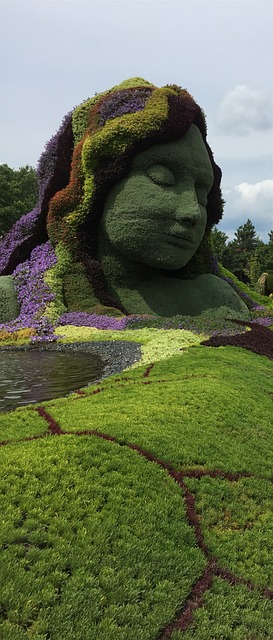 CP asks: “I have an acquaintance who is a member of something known as ‘The Temple of Gaia,’ in Seattle. She has been quite closed-mouthed about this organization; yet, on weekends, she attends services there while her husband attends Christian services. This seems odd to me and I do not trust whatever this is. It seems centered on women’s spirituality and green energy. The woman in question is a former Mormon and is hostile to that faith. Do you have a perspective on this?”
CP asks: “I have an acquaintance who is a member of something known as ‘The Temple of Gaia,’ in Seattle. She has been quite closed-mouthed about this organization; yet, on weekends, she attends services there while her husband attends Christian services. This seems odd to me and I do not trust whatever this is. It seems centered on women’s spirituality and green energy. The woman in question is a former Mormon and is hostile to that faith. Do you have a perspective on this?”
Your friend is involved in neopaganism, specifically, the worship of a pagan goddess known as Gaia.
As the website for this Temple describes, Gaia is “the Great Mother, She who gives birth to all life. She was known as the limitless power and source of fertility in the Universe. We know Her as Mother Earth. She provides us with everything: food, shelter, clothing, the beauty of Nature and the unceasing cycles of life. Gaia’s love for Her children is unconditional.”
During services, which take place twice a month, those who follow an “earth-based spiritual path that includes the Divine Feminine” come together in a “sacred space” to learn about the Goddess and take time for “introspection and prayer.”
For some insight into just how pagan this operation is, consider its founder, the Rev. Judith Laxer, known as the “founding priestess” who is a certified S.H.E.S. (Spiritual Healers and Earth Stewards) minister with a private practice in psychic tarot reading (she charges $90 an hour), Reiki and Shamanic practices. She also provides spiritual counseling during which time she helps clients discover whether their current belief system is “empowering” them.
The Vice President of the Temple, Dr. Tema Gochberg, is a Wiccan priestess who serves as a ritualist for community sabbats and providing newer members of the Pagan community with resources.
Goddess worship is a manifestation of one of the most fundamental components of New Age ideology, which is to celebrate the feminine while moving away from a male dominated society. Also known as goddess spirituality, the sacred feminine, or the feminine divine, it has particular appeal to women who feel marginalized by male dominated churches. Gaia, also known as Mother Earth, is a form of goddess worship that appeals to those with a strong interest in ecology and nature.
However, Gaia worship in particular has a much bigger reach than just a few pagan temples scattered across the country. Many environmental enthusiasts subscribe to a belief in the Gaia Hypothesis, a theory first articulated by a British atmospheric chemist named James Lovelock. This theory contends that the Earth is a self-regulating, self-sustaining entity which continually adjusts its environment to support life. Lovelock argued that ‘the entire range of living matter on Earth, from whales to viruses, from oaks to algae, could be regarded as constituting a single living entity, capable of manipulating the Earth’s atmosphere to suit its overall needs and endowed with faculties and powers far beyond those of its constituent parts’.”
It might sound outlandish, but its adherents have managed to project these absurd theories onto the world stage in truly frightening ways.
According to the American Policy Center, “Gaia worship is at the very heart of today’s environmental policy. The Endangered Species Act, the United Nation’s Biodiversity Treaty and the Presidents Council on Sustainable Development are all offspring of the Gaia hypothesis of saving ‘Mother Earth.’”
The Vatican confirms this terrifying reality in the Pontifical document, Jesus Christ, the Bearer of the Water of Life.
“To some, the Gaia hypothesis is a ‘strange synthesis of individualism and collectivism. It all happens as if New Age, having plucked people out of fragmentary politics, cannot wait to throw them into the great cauldron of the global mind.’ The global brain needs institutions with which to rule, in other words, a world government. ‘To deal with today’s problems New Age dreams of a spiritual aristocracy in the style of Plato’s Republic, run by secret societies . . .’ This may be an exaggerated way of stating the case, but there is much evidence that Gnostic elitism and global governance coincide on many issues in international politics.”
The best thing we can all do right now is pray for your friend, that she may be set free from this bondage to false gods and return to the loving arms of the One True God who created her.
If you want to read more about this subject, our Learn to Discern series includes booklets on Goddess Worship and Eco-Spirituality. Click on the New Age Resources button on the navigation bar for more information.
Send your New Age question to newage@womenofgrace.com









